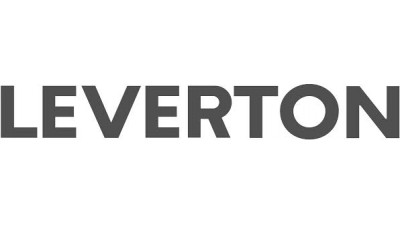Artificial Intelligence’s Potential Impact On CRE Fuels A Growing Shift Toward Insourcing Data

Commercial real estate is a few years out from having robotic brokers and automated deals, but companies are paving the way for artificial intelligence to become the next revolution in the industry. It is a shift that has the potential to put the power of leveraging data into the hands of landlords.
Artificial intelligence is expected to reach $36B in revenue worldwide by 2025. Deep learning is at the core of the new technology and is driving its potential as a real estate disruptor.
Similar to how a child learns a language, machines can ingest new rules and methods for processing information by repeated exposure to the data, rather than being given static rules. The more information the machine is exposed to, the smarter it gets.
Deep learning allows data to be extracted, adapted and changed to suit different needs, languages and accuracy levels. For real estate, it allows for deals on a global level without the use of middlemen. Brokers engaged in international deals and working with documents across multiple languages will not have to hire a translator or commit to paperwork being in one language. The technology has the ability to extract and process the data into the language of the recipient’s choosing, ensuring negotiation terms remain accurate and transparent.
Leverton, a Berlin-headquartered artificial intelligence company with a fast-growing presence in the U.K. and the U.S., is already leveraging deep learning technology to build an artificial intelligence platform for managing data and documents, attracting the attention of major industry players.
In 2017, the company’s smart data platform was used to set up a structured repository of key data from 600 lease files of several properties in the Eastern European market for Hudson Advisors. Information was extracted from nearly 4,500 documents in Czech, English, Hungarian, Polish, Romanian and Slovakian languages, and Hudson Advisors has since moved into a partnership to leverage Leverton's platform for ongoing management of its documents and lease files.

Smart data platforms like Leverton’s are faster and less prone to error than human data entry. Utilizing deep learning algorithms, these platforms can complete the data processing normally reserved for manual input, saving time and money.
The platform also can notice when information is missing, needs a review or is important. Following the 2016 revision of the Financial Accounting Standards Board and International Financial Reporting Standards, the boards replaced the previous IAS 17 standard with IFRS 16, which distinguishes between operating and financing leases. Deep learning tools can consolidate all the relevant lease files, identify those files that need to comply with the new standards and bring relevant data points onto the balance sheet. Using Leverton's platform, clients can more easily and accurately comply with IFRS 16 standards.
The relation between each piece of information is taken into account, rather than being considered individually, flagging repeat issues in the future. The labor-intensive analysis also shifts the responsibility away from the employees, allowing the time to add value to less mundane tasks.
While the fear is that, with the success of these platforms, landlords will depend less on brokers to manage their portfolios, firms have increasingly sought to merge human intuition with the precision of machine learning. In Q4 2016, Leverton entered a global collaboration with JLL, deploying the tech company’s automated lease abstraction software for clients in North America, Continental Europe and Asia Pacific. JLL was one of the first investment management companies to engage with Leverton on a global scale.
Rather than replace brokers with artificial intelligence, the collaboration has strengthened the human presence of brokers at the firm, who can spend more of their time communicating with clients instead of being bogged down with paperwork.
Commercial real estate has only scratched the surface of what artificial intelligence can offer. Beyond management of paperwork, the technology could revolutionize every step of the real estate process, from intelligent search engines to combining listings with automatic investment advice and image recognition. Perhaps most impactful has been the door it has opened for more egalitarian analysis of data.
No longer locked into undecipherable spreadsheets, landlords and potential investors are now more informed about their deals and portfolios, thanks to platforms like Leverton.
Leverton is an AI-driven global software platform that uses machine learning technology to automate the process of lease abstraction, creating actionable and structured data. To learn about this Bisnow content partner, click here.

